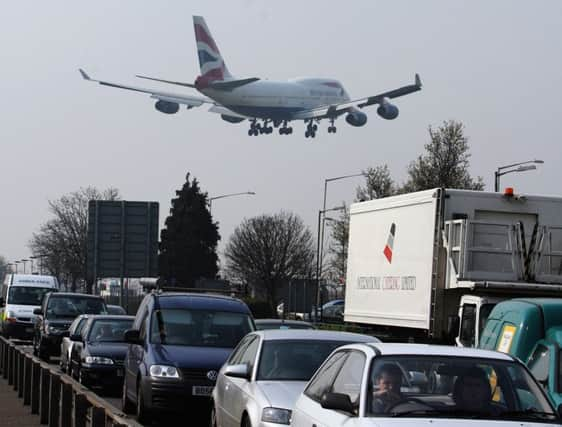Feeling the heat over climate change


You may feel like you’ve heard it before but there’s a “make or break” climate summit coming up. World leaders are meeting in Paris in December to try to reach agreement on action to stave off dangerous global climate change.
The hope is an agreement that puts the world on a path to stay within safe climate limits (defined as a less than 2C temperature rise from pre-industrial times).
Advertisement
Hide AdAdvertisement
Hide AdMany see the Paris meeting as our last chance as a global community to show real commitment and leadership on tackling climate change. So far, commentators are underwhelmed by the pre-meeting negotiations. They point out that individual country pledges don’t add up to a big enough reduction in emissions of the greenhouse gases that are causing human-induced climate change. They warn that Paris may be another international disappointment.
But away from the technical arguments about what share of the burden each state should take on, there are some concrete signs of progress: cities, regions and nations are getting on with trying to deliver social and economic well-being whilst reducing their greenhouse gas emissions. Like Copenhagen, which has the ambition of becoming the first carbon neutral capital by 2025. The goal is supported by a strong strategic climate action plan of 50 initiatives that will enable them to reduce emissions by 20 per cent by the end of 2015.
Then there is California – a state with an ambitious programme for ramping up renewable energy and speeding up the development of cleaner cars. There is also a cap-and-trade programme, which like its European equivalent puts a legal limit on the amount of greenhouse gases that industry as a whole can emit. This sort of action shows us what can be done. To stay within safe climate limits, countries need to multiply that effort up right across the globe.
Let’s not forget Scotland’s own climate change goals. The Scottish Government hasn’t made it easy for itself by calculating emissions in a way that is making the targets even more challenging. So despite Scotland missing the annual emissions reduction targets for four years in a row, we have made significant progress on reducing greenhouse gas emissions whilst improving our well-being, and we should take pride in that.
In the year of the Paris climate summit, when attention is focused on the ability to deliver effective outcomes, it has never been more important for Scotland to get back on track with its commitments. Scotland may only be a small player on the global stage, but the commitment and ingenuity Scotland has shown in our efforts to reduce our greenhouse gas emissions whilst improving social and economic outcomes send a strong message: this can be done. Scotland needs to continue to lead by example, learn from others who are leading the way, share the lessons we’ve learned and encourage others to join us.
One of the most tragic predicted impacts of climate change is the pressure that effects like droughts and sea level rise will put on already vulnerable people. This is likely to make fragile security situations even worse. As Jean-Claude Juncker, the president of the European Commission, said recently: “climate refugees will become a new challenge – if we do not act swiftly.”
Climate change is going to act as a “multiplier”, combining with other stresses to be “one of the root causes of a new migration phenomenon” as Juncker put it.
Working locally on climate change is a matter of both global and local justice. Scotland has made a clear commitment to climate justice. Some of the world’s poorest and most vulnerable people will have access to secure supplies of water and increased food security thanks to the funding made available through the Scottish Government’s Climate Justice Fund.
Advertisement
Hide AdAdvertisement
Hide AdIn any agreement in Paris there needs to be a focus on local, regional and national action.
A global deal must help those most affected by climate change to adapt to its consequences. It must further the commitment already made by countries to work together to address the loss and damage associated with the impacts of climate change.
Tackling water scarcity and improving resilience to drought, improving flood barriers, trialling new crops and farming practices – these are just some of the issues that our world leaders need to consider at the Paris summit. The effects of climate change are already being felt both here and overseas. We need to redouble our efforts both to reduce our emissions of greenhouse gases and to deal with the unavoidable effects of climate change.
ECCI is teaming up with the University of Edinburgh’s “Edinburgh Action for the Climate” campaign, to harness University and city expertise to help tackle this global challenge.
Edinburgh seeks to play a positive role in this global discussion, through a series of events and interventions to support effective outcomes from Paris.
For more details, see: http://edinburghcentre.org/events/COP21_Paris_Events_at_ECCI
• Ragne Low, project manager, ClimateXChange, Edinburgh Centre for Carbon Innovation